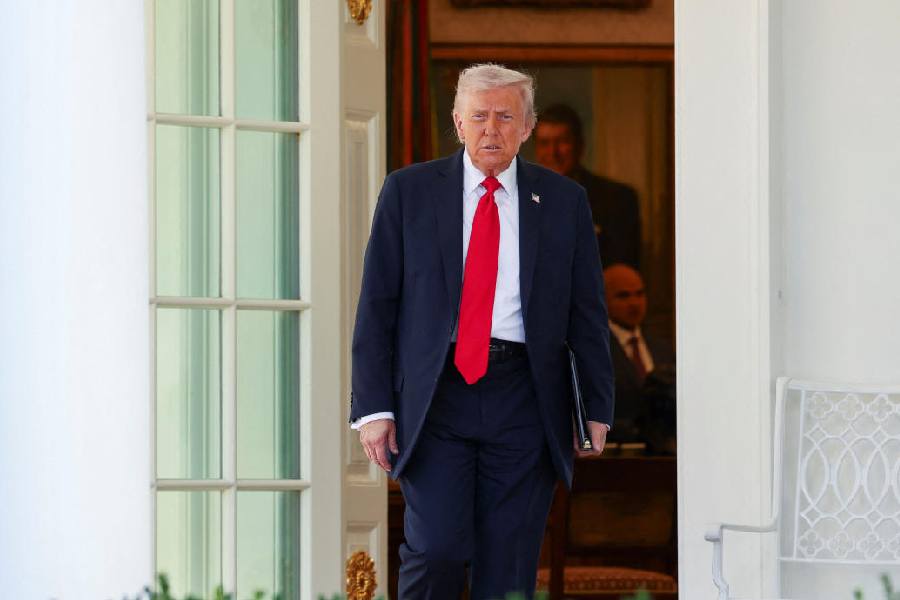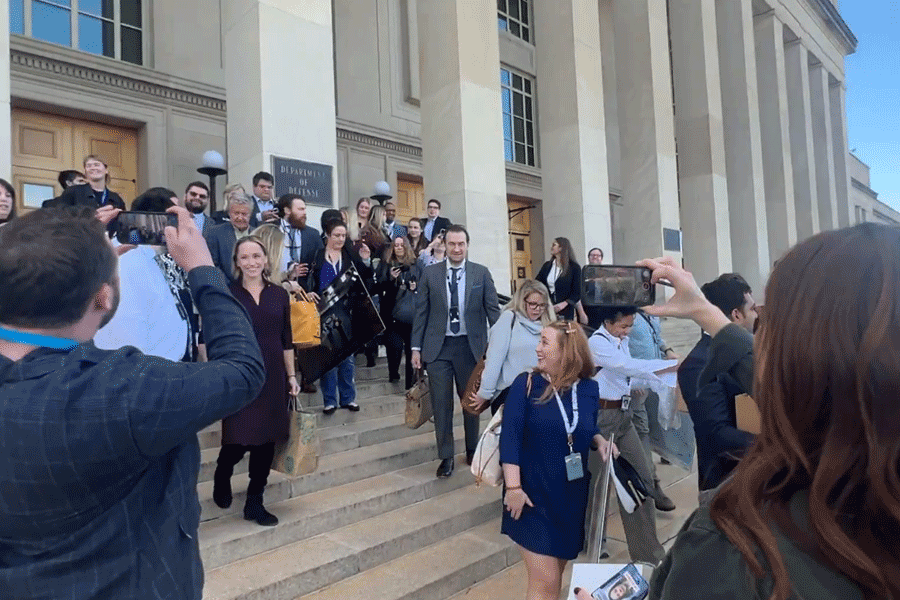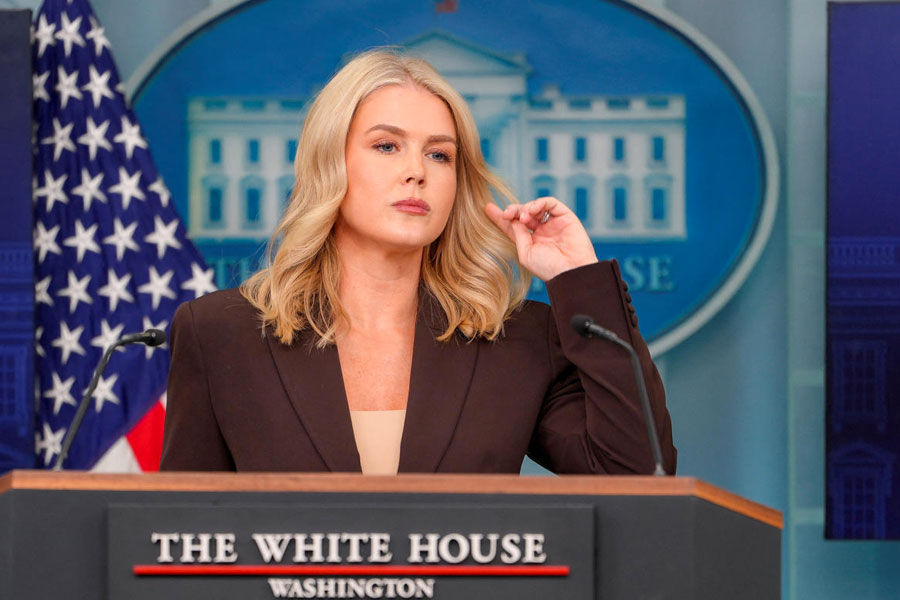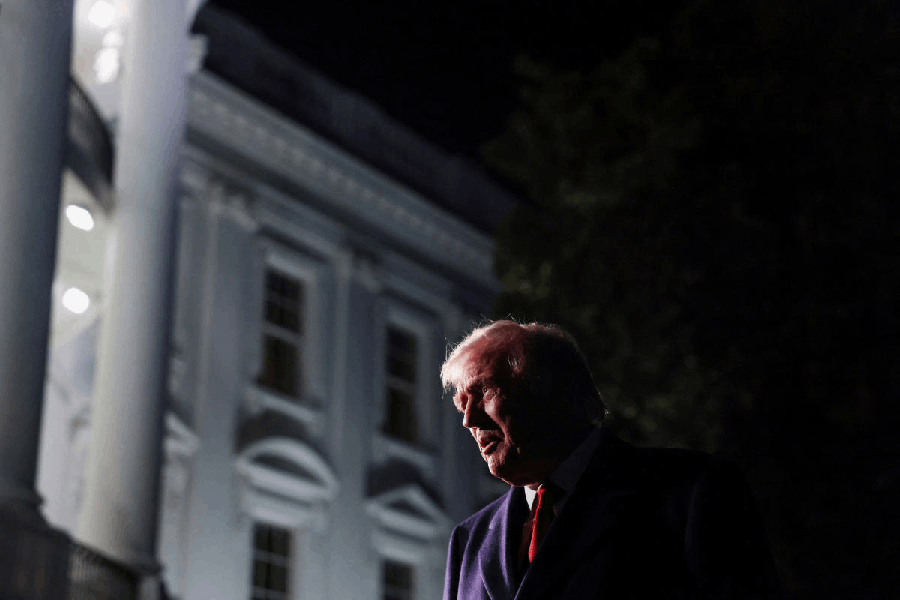The White House on Friday imposed new restrictions on reporters’ access to key West Wing offices, marking the second major limitation on press movement in federal institutions this month.
The move came just as Donald Trump prepared for his return to CBS News’ 60 Minutes, his first appearance on the program since settling a lawsuit with the network this summer.
Earlier this month, similar restrictions at the Department of Defense forced dozens of journalists to vacate offices at the Pentagon after they declined to sign a new policy governing access.
At least 30 outlets, including Reuters, refused the new terms, which required reporters to acknowledge that they could be deemed “security risks” and have credentials revoked if they sought classified or certain unclassified information.
A memorandum issued by the National Security Council (NSC) bars journalists from entering Room 140, known as “Upper Press” without an appointment. The area houses the offices of press secretary Karoline Leavitt, her deputy Steven Cheung, and other senior communications officials.
The NSC said the rule, effective immediately, is meant to “protect potentially sensitive material.”
The directive ends years of open access for credentialed reporters, who could previously approach communications officials on short notice in the corridor near the Oval Office.
Cheung defended the move, saying on X that “some reporters have been caught secretly recording video and audio of our offices, along with pictures of sensitive info, without permission.” He added that journalists had “wandered into restricted areas” and “eavesdropped on private, closed-door meetings.”
“Cabinet Secretaries routinely come into our office for private meetings, only to be ambushed by reporters waiting outside our doors,” Cheung wrote.
Journalists will still be allowed to visit another section of the West Wing where junior White House spokespeople are based, the NSC noted.
The last comparable move came in 1993 under president Bill Clinton, when the administration briefly restricted West Wing access.
The White House action follows the Trump administration’s earlier decision to remove Reuters, the Associated Press, and Bloomberg News from the permanent press pool, though those outlets are still occasionally permitted to participate.
The press restrictions came the same day CBS confirmed that Trump sat down with Norah O’Donnell for an interview at Mar-a-Lago, set to air Sunday on 60 Minutes.
It marks his first appearance on the program since 2020, and since he settled a lawsuit this summer with CBS News over its interview with Kamala Harris.
CBS provided few details about how the interview was arranged or whether any ground rules were set. O’Donnell, a former CBS Evening News anchor, is not a regular 60 Minutes correspondent.
Trump’s history with the newsmagazine has been rough.
He walked out of an interview with Lesley Stahl in 2020, accusing the show of bias, and later released an unedited version of the conversation. During the 2024 campaign, he refused further invitations from the program but alleged that its interview with Harris had been “deceptively edited to make her look good.”
CBS denied wrongdoing, but Trump filed a lawsuit that Paramount , CBS’s parent company, settled for $16 million this summer, just before the Federal Communications Commission approved Paramount’s merger with Ellison’s Skydance Media.
Following the settlement, 60 Minutes executive producer Bill Owens resigned, citing growing interference and the erosion of editorial independence.
Since then, new Paramount CEO David Ellison has signaled friendlier ties with Trump.
Ellison appointed Kenneth Weinstein, a conservative donor and former think tank head, to review alleged political bias in CBS News coverage.
The company also acquired the Free Press website in October and installed its founder, Bari Weiss, as editor-in-chief of CBS News. Weiss reportedly helped arrange an earlier 60 Minutes segment featuring Trump’s son-in-law Jared Kushner and aide Steve Witkoff discussing the Gaza peace deal.
Flying back from the Middle East on Oct. 12, Trump praised the Ellisons, telling Associated Press reporters “Larry Ellison is great, and his son David is great. They’re friends of mine. They’re big supporters of mine, and they’ll do the right thing.”













